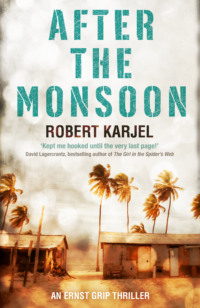After the Monsoon: An unputdownable thriller that will get your pulse racing!

Добавить В библиотекуАвторизуйтесь, чтобы добавить
Добавить отзывДобавить цитату
After the Monsoon: An unputdownable thriller that will get your pulse racing!
Вы ознакомились с фрагментом книги.
Для бесплатного чтения открыта только часть текста.
Приобретайте полный текст книги у нашего партнера:
Всего 10 форматов
Авторизация